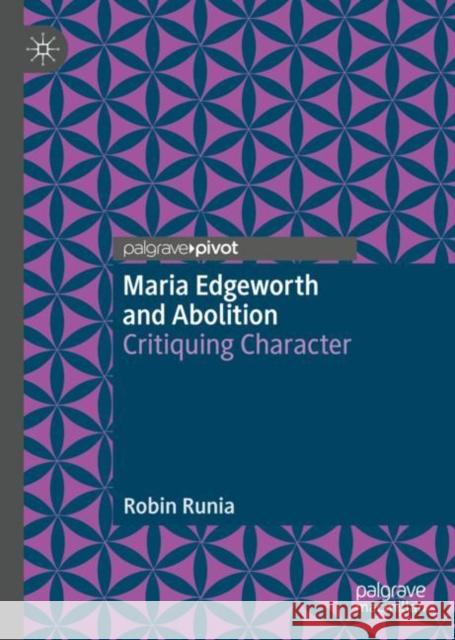Maria Edgeworth and Abolition: Critiquing Character » książka
Maria Edgeworth and Abolition: Critiquing Character
ISBN-13: 9783031120770 / Angielski / Twarda / 2022 / 121 str.
This Palgrave Pivot offers new readings of Maria Edgeworth’s representations of slavery. It shows how Edgeworth employed satiric technique and intertextual allusion to represent discourses of slavery and abolition as a litmus test of character – one that she invites readers to use on themselves. Over the course of her career, Edgeworth repeatedly indicted hypocritical and hyperbolic misappropriation of the sentimental rhetoric that dominated the slavery debate. This book offers new readings of canonical Edgeworth texts as well as of largely neglected works, including:Whim for Whim, “The Good Aunt”,Belinda, “The Grateful Negro”, “The Two Guardians”, andHarry and Lucy Continued. It also offers an unprecedented deep-dive into an important Romantic Era woman writer’s engagement with discourses of slavery and abolition.
This Palgrave Pivot offers new readings of Maria Edgeworth’s representations of slavery. It shows how Edgeworth employed satiric technique and intertextual allusion to represent discourses of slavery and abolition as a litmus test of character – one that she invites readers to use on themselves. Over the course of her career, Edgeworth repeatedly indicted hypocritical and hyperbolic misappropriation of the sentimental rhetoric that dominated the slavery debate. This book offers new readings of canonical Edgeworth texts as well as of largely neglected works, including: Whim for Whim, “The Good Aunt”, Belinda, “The Grateful Negro”, “The Two Guardians”, and Harry and Lucy Continued. It also offers an unprecedented deep-dive into an important Romantic Era woman writer’s engagement with discourses of slavery and abolition.











